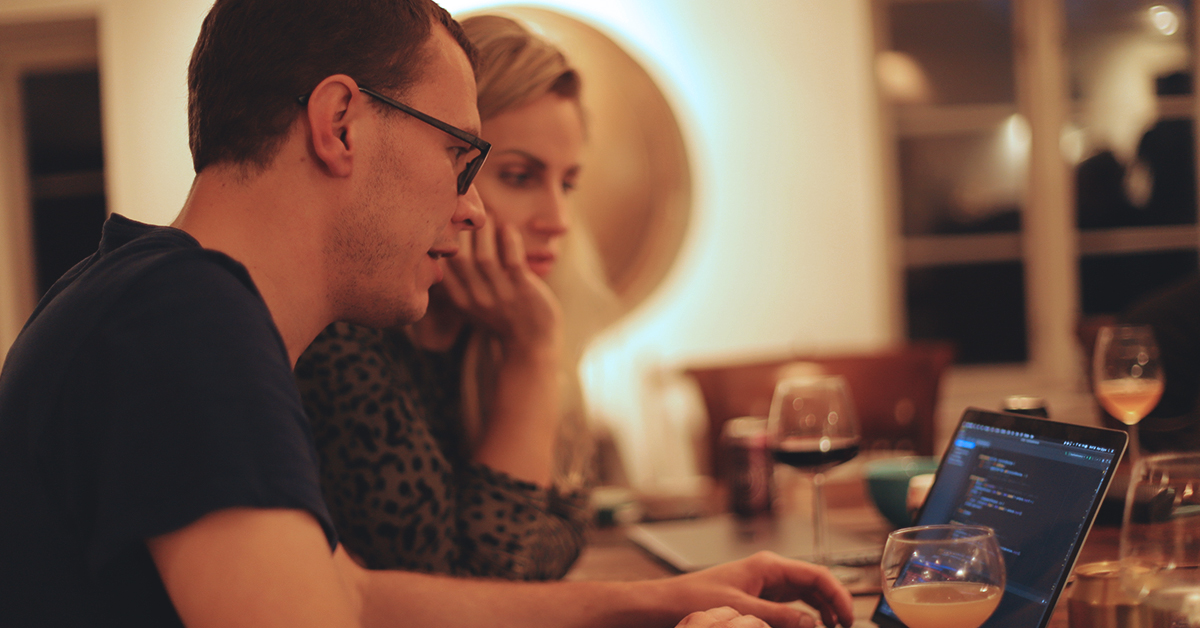
How can self-leadership and self-reflection help us in more difficult times and how are we affected by hybrid work? We ask Anna Rattigan, psychologist and organizational coach.
Anna specializes in industrial and organizational psychology. With evidence-based strategies, she helps leaders and teams develop and grow through her company OpTeamize Consulting.

It depends on what kind of life situation we have in general, and whether we are good at staying social outside of work - with or without the pandemic. If you are a person who is more outgoing, it can be easier to maintain social contacts with co-workers but also with friends in your free time. If you live alone and if you are a person who likes to keep to yourself in ordinary cases, it can be a challenge and a risk that you experience loneliness as more obvious.
As a leader, it is important to be aware of this and of course also as a co-worker, so that we show care and "push" extra for e.g digital coffee breaks and AW's, where everyone can participate and get a common context. This makes it easier and makes us a little less vulnerable to loneliness.
By being aware of our own needs, strengths and challenges, it also becomes easier to know what we need and when. You can get help from this knowledge and prevent the risk of loneliness or, over working, and make sure to, for example, book things that you feel good about and limit working hours. Being self-aware is something good when times get though. By knowing your own needs, it also becomes easier to understand the needs of others, even if they might differ. It's important that we take the time to stop what we're doing and feel what's actually happens inside of us, without escaping from it or pushing it away.
There may be a little turbidity sometimes, it doesn't kill us, but we can instead learn some of our reflections and what we need to act on to feel better. Sometimes we fall short and do things that others want us to do. Will there be too much of that product, ie. estimates of things that make us feel less good, there is an increased risk of feeling worse over time.
Yes absolutely! There are new studies from Lund University that actually show the benefit of being able to work mixed when we are out on the other side of the pandemic. As a working population, we have been able to show that productivity even increases with working from home and that there are advantages to not being disturbed, which is a greater risk if you work in so-called open landscapes.It will probably be that we will do more of the social and creative elements when we are in the office, but do things that require more focus from the home office in the future. If we add, for example, the component that some have a family and can pick up children earlier from preschool and school, then there are also quality of life gains to be made, which reduces stress and gives more satisfaction with life. In addition, some businesses can reduce office space and save money.
There will always be those who prefer this or that, so some adaptation will surely be needed. For my own part, I find it difficult for models who lean towards "one size fits all", I think that sensitivity and flexibility from the managers is a winning concept and to dare to test and show confidence in the employees!
Do you also see the benefits of mixing? We thank Anna for her answers and we agree - responsiveness and flexibility are a winning concept!
The photo of Anna is taken by photographer Charlotte Carlberg Bärg.
These Stories on Workplace culture
Meetio AB/Logitech Nordics AB
Hamngatan 4
211 22, Malmö
Sweden
Magnus Ladulåsgatan 3
SE-118 65 Stockholm
Sweden
Sweden: +46-(0)10-101 95 60
No comments yet
Let us know what you think!